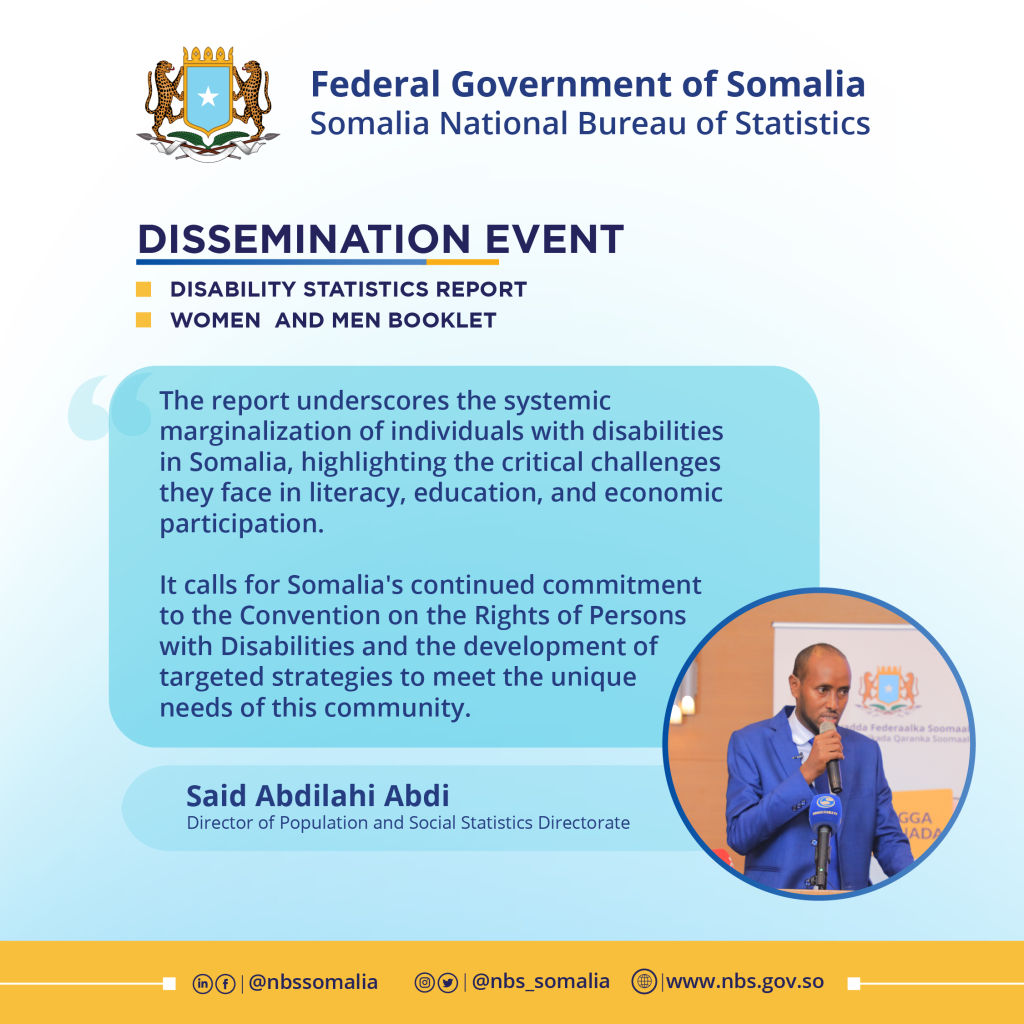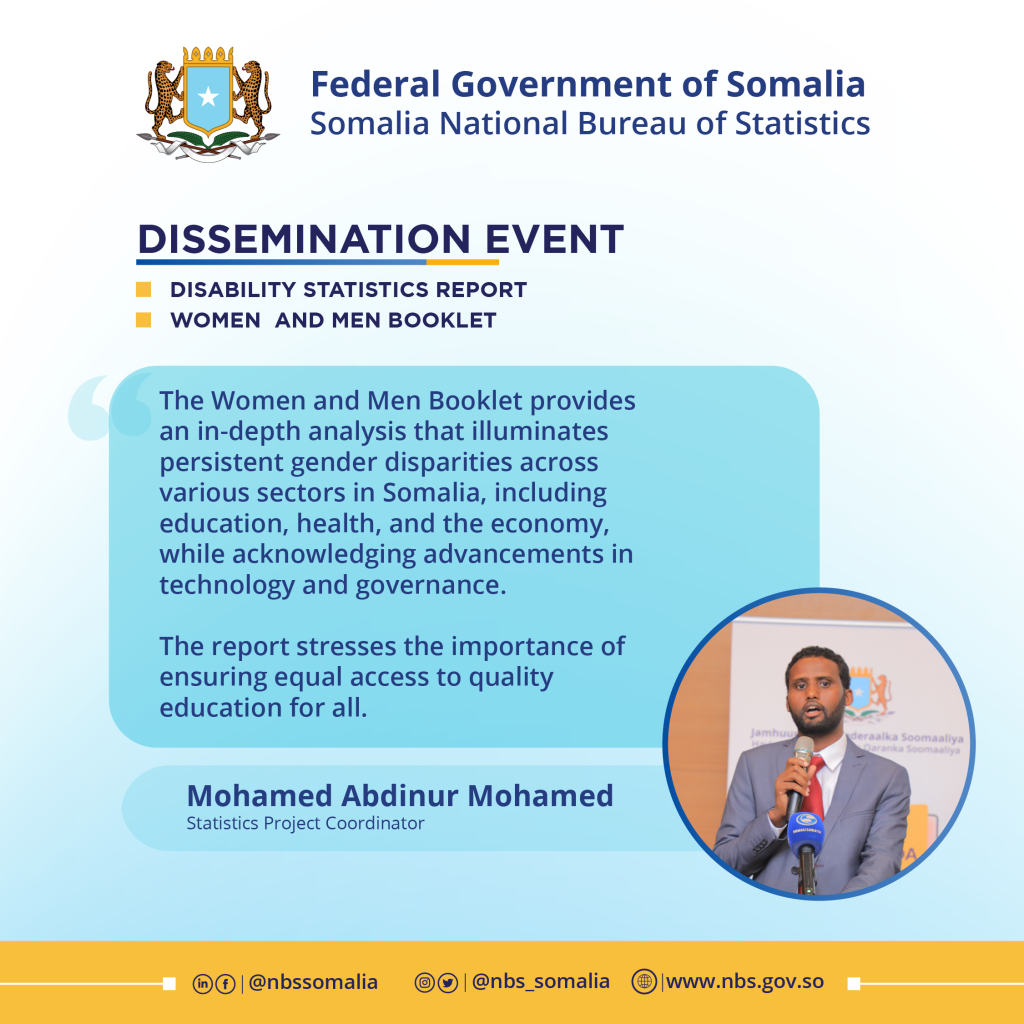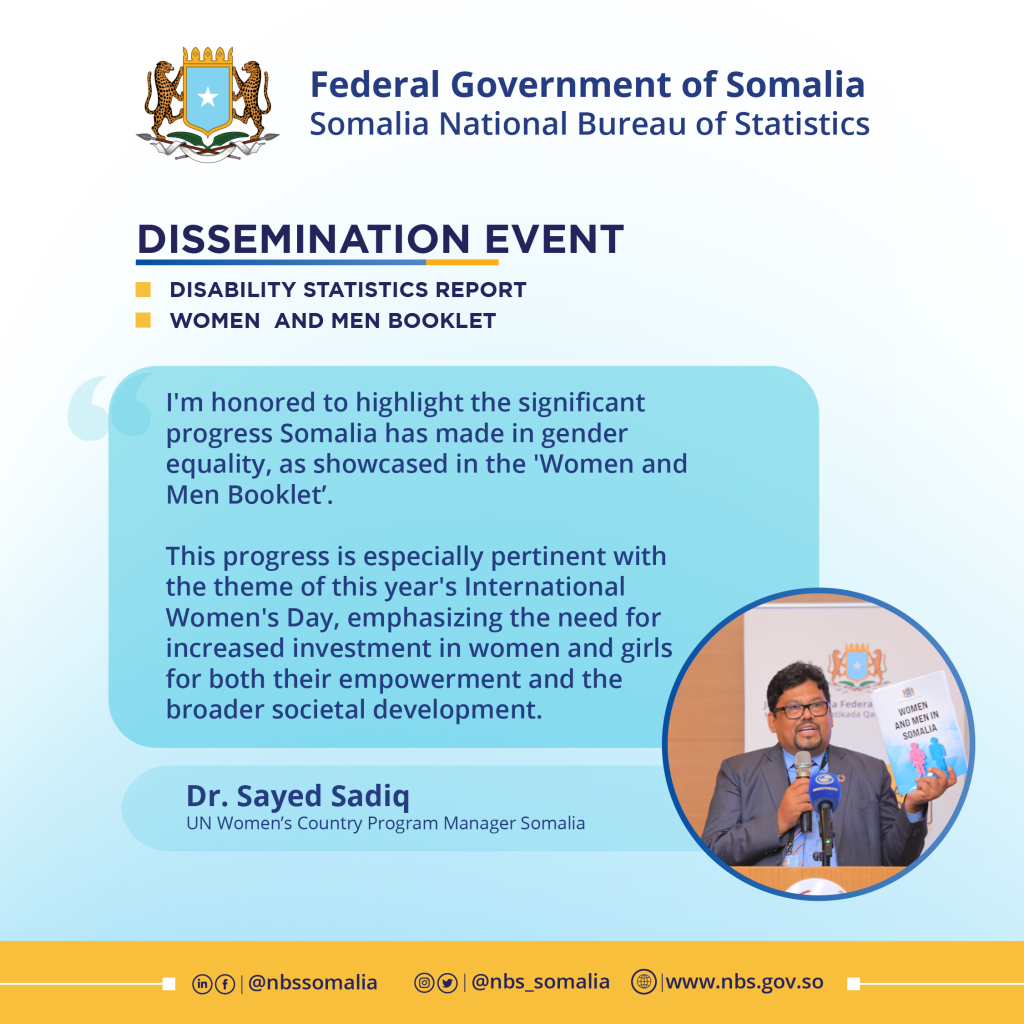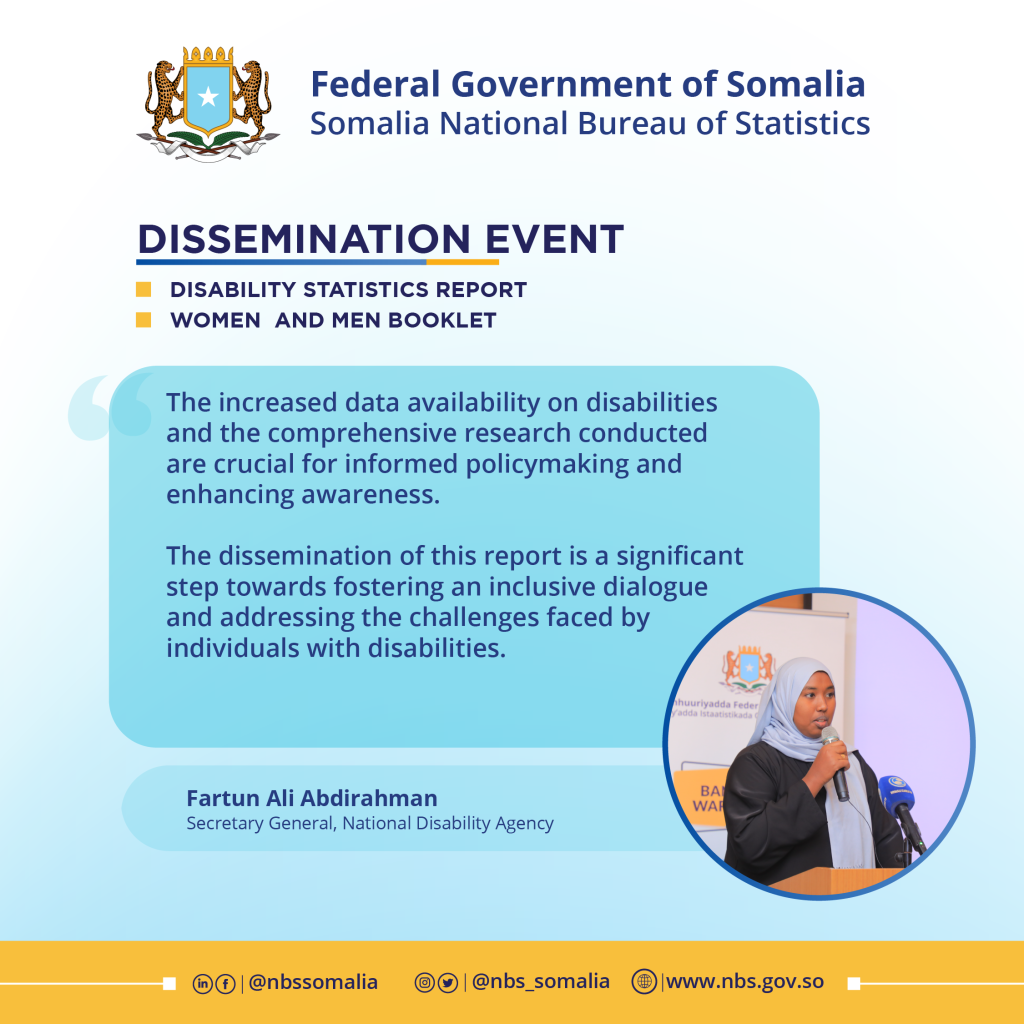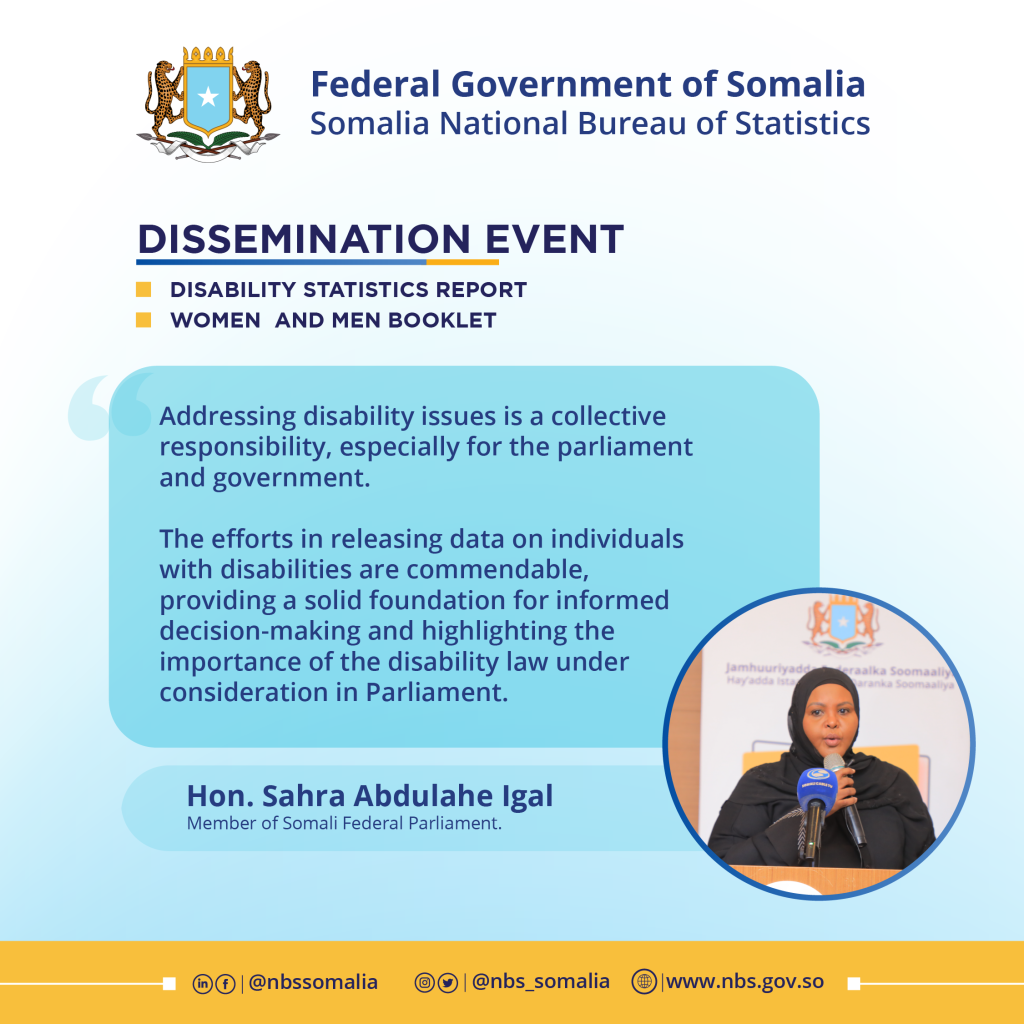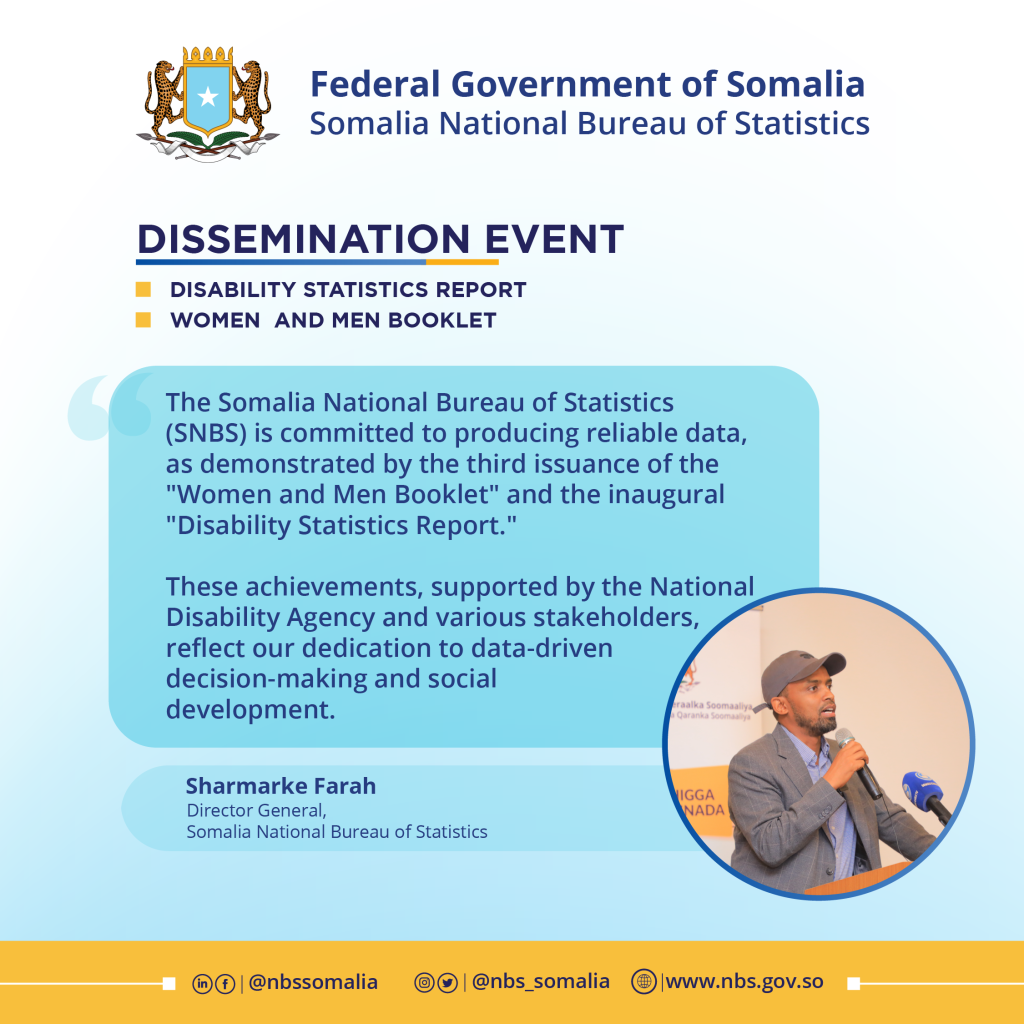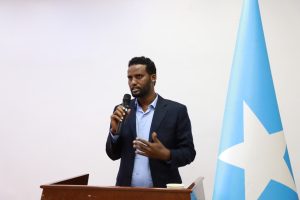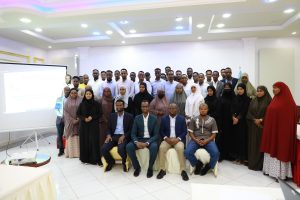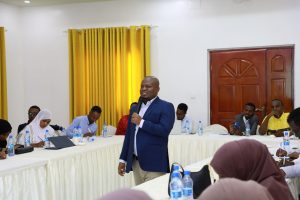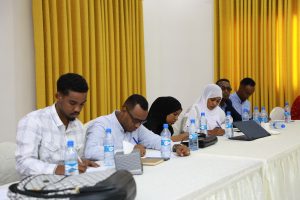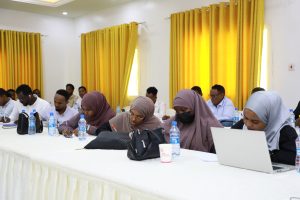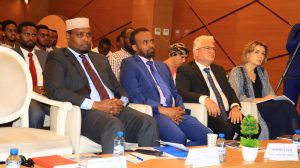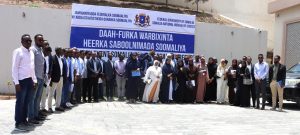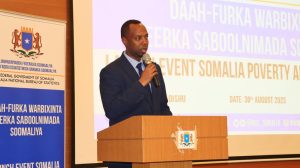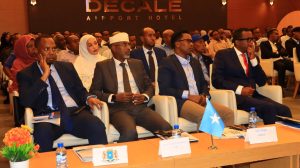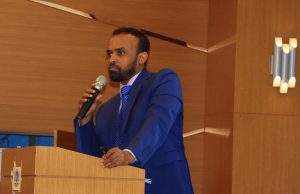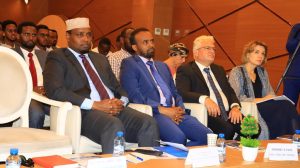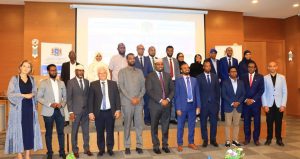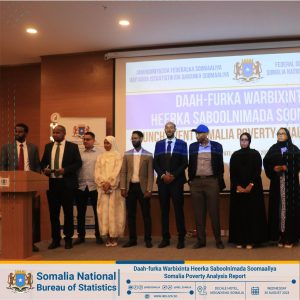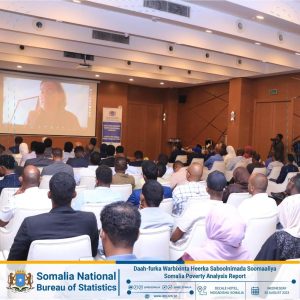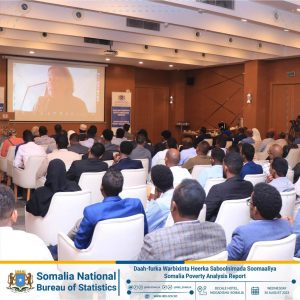Press Release
Mogadishu, Saturday, June 24, 2023 — The Somali National Bureau of Statistics launches the First Ever Somalia Multidimensional Child Poverty Report in Somalia (MDCP), a report compiled from the 2020 Somalia Health and Demographic Survey (2020 SHDS), a nationally representative survey via MODA tool that outlines risks on nutrition, health, water, sanitation & hygiene, housing, education, information & violence. It critically analyses approaches to measuring child poverty, including children’s needs at different life cycle stages, that is, early childhood, primary childhood, and adolescence, details on the profiles of children experiencing various forms and combinations of deprivations. The study examines critical dimensions affecting children’s well-being in Somalia. It further explores enabling environment to support evidence-based advocacy around investment in critical services for deprived children. The launch served as a platform for sharing insights, discussing best practices, and fostering partnerships among key stakeholders in the field.
The report presents child poverty analysis in Somalia using a direct method of child poverty measurement (MODA) which analyses deprivations experienced by the child. MODA is a tool that provides a systematic procedure to identify deprived children, especially overlapping coincidences of deprivations. The study uses Multiple Overlapping Deprivation Analysis (MODA) to assess Somalia’s multidimensional childhood deprivation level. MODA enhances policy efficiency through simultaneous integration of interventions to reduce multiple deprivations.
The report aims to improve the multidimensionality of child poverty in Somalia by implementing the Convention on the Rights of the Child (CRC), which Somalia ratified in 2015, hence committed to improving the condition of its children.
The National Bureau of Statistics (SNBS) prepared, analyzed and published Somalia’s multi-dimensional child poverty analysis report, with technical assistance from UNICEF Somalia. As the country works towards achieving poverty reduction, there have been a number of plans, strategies, policies and reports designed or analyzed to identify significant risk factors for multidimensional child poverty in Somalia, many of which lacked direct method of child poverty measurement that would analyze deprivations. To achieve such a coordinated and harmonized multidimensional deprivation analytical report, the Bureau has to display the capacity to produce direct reports that are based on accurate and reliable data.
Use of MODA to generate this report is an example of such knowledge based analysis which seeks to inform different stakeholders on the state of the child poverty Deprivation Analysis and extrapolates how key poverty indicators are expected to perform in the coming years. What makes it unique is the fact that this analysis was fully developed in-house and the challenge is to sustainably produce this and other types of sector-based analysis.
SNBS Director General, Mr Sharmake Farah who spoke during the report launch welcomed participants and expressed appreciation to all those who contributed to the successful completion of the analysis report, including the Deputy DG, Abdirahman Omar, colleagues from Social Development Line MDAs, other SNBS colleagues, without whose active involvements the report would not have been completed. The DG reaffirmed that their cooperation and endorsement strengthen the significance and applicability of this report in driving our nation’s progress forward.
The DG acknowledged the role of development partners particularly, UNICEF Somalia in supporting the drafting of this critical report. “Together, we are empowering Somalia with accurate and comprehensive report analysis for effective policy-making and program implementation”, remarked the DG.
SNBS Population and Social Statistics Director, Mr. Said Abdillahi noted that consultations were made with experts from Somalia throughout the report writing period and that, to contextualize the MODA methodology, SNBS hosted a national consultation workshop with key stakeholders. The workshop sought to reach consensus on two key issues: deciding on age groups that define typical stages of child development in Somalia, and identify relevant deprivation dimensions in each age group and specify dimensional indicator(s).
Speakers reflected on the report and acknowledged the significance of the Multiple Overlapping Deprivation Analysis and reaffirmed that the MDCP report identifies most critical risk factors for multidimensional child poverty in Somalia.
Mr. Mohamed Yarani who presented the report observed, “MODA analysis provided the profiles of the deprived children and the families they live in. The profiles showed the differences between the better off and the worse off children, hence helped identify which groups of children suffer from inequitable deprivations”.
The report shed light on risks relating to nutrition, health, water, sanitation & hygiene, housing, education, information, and violence. It reveals pressing issues facing children, such as limited access to education and high rates of child labour.
Speaking at the launch event as a keynote speaker, Abdifitah Ahmed Diriye, Director of Somalia Health Institute, said, “there is a significant overlap in deprivations, which suggest that integrated approaches are needed to address childhood deprivation adequately. Children experience poverty in different ways that ultimately affect their development”.
Fartun Ali Abdirahman, Secretary General of National Disability Agency who was among the speakers, stressed that children with disabilities have equal rights before the law with other citizens and as such, they deserve to be given special priorities in future child poverty analysis.
Speakers were unanimous that the findings of the MDCP report will help inform policymakers and stakeholders, guide targeted interventions to address multidimensional challenges facing children in Somalia.
The Multidimensional Child Poverty Report launch event has had esteemed government officials’ participation including SNBS Director General, SNBS Social Sector Statistics Director, Federal Social Development Ministries department directors, research firms, the academia, media fraternity and other stakeholders of the national statistical system.










